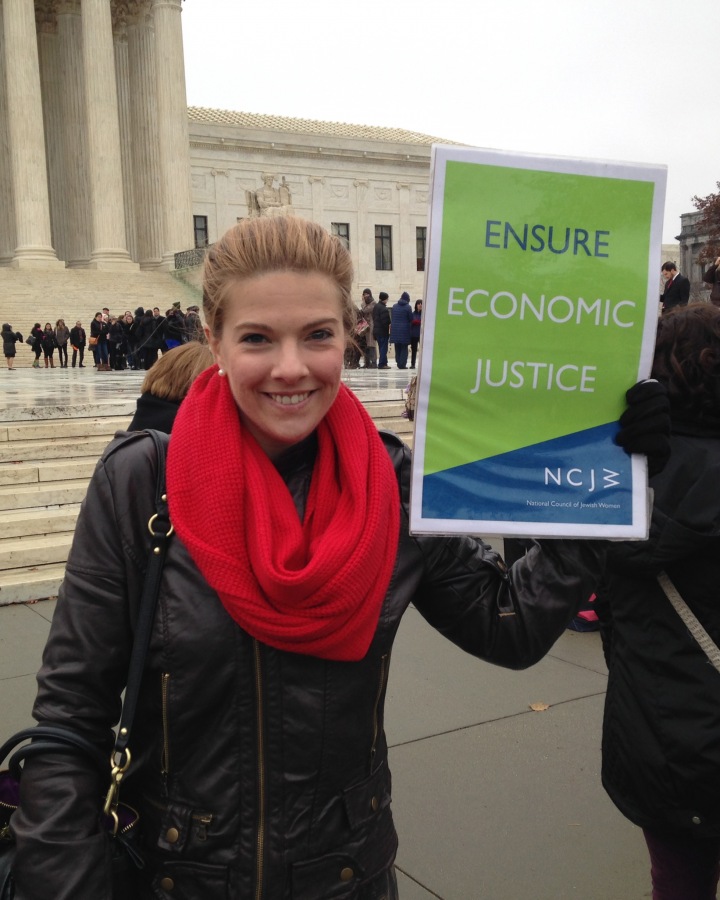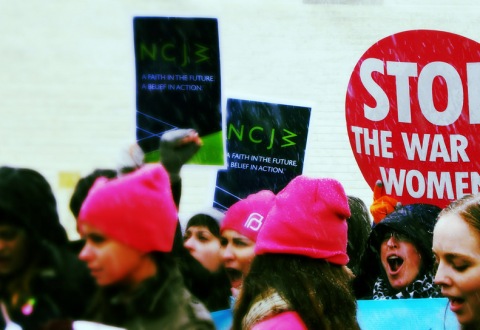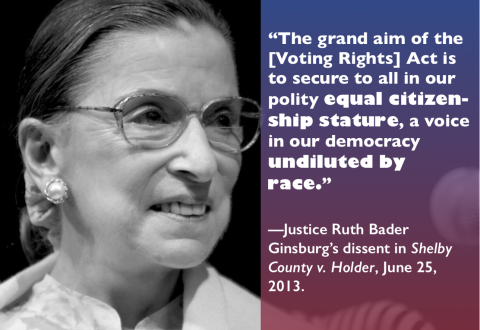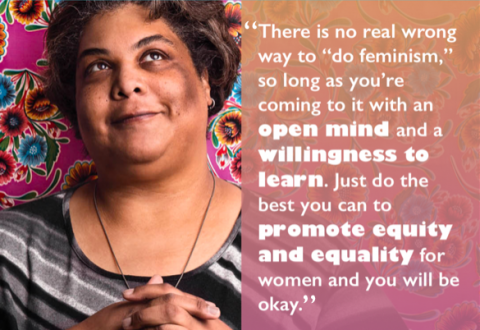
Economic Justice
NCJW has long worked for policies that address the needs of low-income and working Americans.
Scroll down
Secure equal pay for women
A democratic society must fulfill its obligations to provide for the needs of those unable to provide for themselves. Yet, while the American Dream promises economic opportunity and hope for a better future, many people in this country face a very different reality. In the United States, poverty — not prosperity — is the reality for millions of individuals and families who daily make difficult choices between food, rent, medical bills, and other basic expenses. And the majority of those living in this reality are women.
NCJW has long worked for policies that address the needs of low-income and working Americans, including:
Minimum Wage. The $7.25 federal minimum wage has been stagnant since 2009, and many of the individuals living in poverty in the US today work full time jobs but still do not earn a “livable wage,” or an income that covers basic needs. More than half of women are minimum wage earners and nearly a third have children. Raising the minimum wage — and the tipped minimum wage — will lift incomes and benefit families.
Equal Pay. Women earn 80 cents for every dollar earned by a man, a gap that is even wider for women of color. NCJW advocates for measures that would help close the gap, including updating and strengthening the Equal Pay Act, barring retaliation against workers who disclose their own wages to co-workers, and prohibiting employers from seeking a job applicant’s salary history.
Paid Leave. Only 14 percent of workers have access to paid leave, forcing most individuals to choose between earning a paycheck and caring for an ill parent, child, or themselves. Forty three million people do not even have access to a single paid sick day. The absence of paid leave policies in the United States most harms women — in particular women of color and those struggling to make ends meet — as women are disproportionately single parents and caregivers.
Employment Nondiscrimination. It’s currently legal in 31 states to be fired because you are gay, lesbian, bisexual, transgender, or queer (LGBTQ). Employment discrimination is one of the reasons that LGBTQ individuals, particular those of color, face higher rates of poverty and homelessness. In addition, pregnant workers are frequently pushed out of their jobs or denied reasonable accommodations. NCJW advocates expanding employment nondiscrimination laws at the federal, state, and local levels.
News & Updates
Our Community Economic Justice




